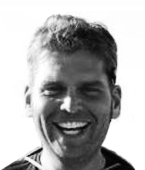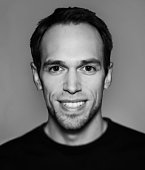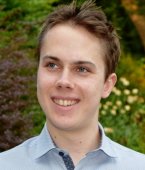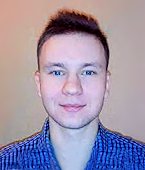This course of the EO AFRICA R&D Facility will take place at the Laboratoire de télédétection appliquée, Université Cheikh Anta Diop de Dakar, Dakar, Senegal.
The course will be taught partly in French, partly in English.
Participants will get an introduction on how to use satellite imagery for the purpose of agricultural monitoring at individual field scale. Detailed topics include parcel delineation, crop type mapping, determination of crop growth stages, crop production and crop stress assessment. The training will be composed of face-to-face lecturing, providing a solid conceptual background, combined with hands-on exercises in the Python programming language to strengthen your practical skills.
Upon completion of this course, the participant will:
- Be aware of both the possibilities, advantages and limitations of satellite EO data for the purpose of agricultural monitoring at field scale.
- Know how to access and use the appropriate data and tools for crop monitoring applications.
- Have gained knowledge on the primary plant function "photosynthesis" with the aim to better understand the role of evapotranspiration (ET), plus various qualitative and quantitative means to assess how lack of ET may impede crop production.
- Have practiced the use of open-source software for satellite image processing.
ABOUT THE COURSE
22 and 26 January, 2024
CAN I APPLY?
Who can participate?
Space is limited to max. 25 participants. Participants will be selected on the basis of their academic background, work experience and motivation to participate. If you are selected you will receive a confirmation e-mail with further information by January 8, 2024.
Participants should reside in one of the African countries, should have an academic background related to, Agriculture, Food Security, Ecology or similar, and have knowledge of basic Earth Observation techniques and principles. Young researchers in this field are encouraged to apply!
Speakers:
-

Assistant Professor – Department of Natural Resources, Faculty ITC of the University of Twente
https://people.utwente.nl/m.t.marshall
m.t.marshall@utwente.nl -

R&D Professional – Agricultural Applications, VITO Remote Sensing
https://remotesensing.vito.be/team/jeroen-degerickx
jeroen.degerickx@vito.be -

Data Scientist – Research and Development in EO technologies, VITO Remote Sensing
darius.couchard@vito.be -

Assistant Professor – Department of Water Resources, Faculty ITC of the University of Twente
https://people.utwente.nl/e.prikaziuk
e.prikaziuk@utwente.nl
Registration:
Schedule
Each day will consist of morning and afternoon sessions with a total duration of 6 hours. The sessions will alternate between lectures providing the theoretical background and practical exercises in the Python programming language to get acquainted with data access, download, processing and interpretation.
- Morning session: 09:00 – 12:30 (incl. 30 mins coffee break)
- Lunch break: 12:30 – 13:30
- Afternoon session: 13:30 – 17:00 (incl. 30 mins coffee break)
Certificate of Attendance
All participants who have been actively present and participating during the workshop will be issued a Certificate of Attendance by the EO Africa R&D Facility.
Technical requirements
Participants are requested to bring their own (updated) laptop. A large part of the training will consist of hands-on exercises in Python. Having some prior experience in programming in Python or a similar programming language is therefore highly recommended. Participants not meeting this requirement are advised to follow some free Python tutorials online, e.g. here and here.
It is strongly advised that the participants follow the first 2 On-line courses of the EO AFRICA R&D Space Academy ("Cloud Computing and Algorithms for EO Analyses" and "Principles of and advances in Earth Observation"). Participants will get access upon acceptance for this Face to Face course – or can self-enroll already at:
- EO AFRICA – Cloud Computing for EO Analyses
- EO AFRICA – Principles of and advances in EO (optical and SAR)
(please note that registering is needed)
Cost and Sponsorship
Attendance to the training course is free of charge. Lunch and coffee will be provided during the workshop.
Participants will need to arrange and pay for their own travel, subsistence and accommodation.
For those not residing in Dakar, the Facility can sponsor up to EUR 200 to cover such expenses. Should you want to apply for this funding, please indicate it in the application form. Payment of the 200 Euro (max) will go via bank transfer and will be arranged after completion of the workshop. Only participants not residing in Dakar are eligible for sponsorship.
From January 8 onwards, applicants will be informed on acceptance and sponsorship.
